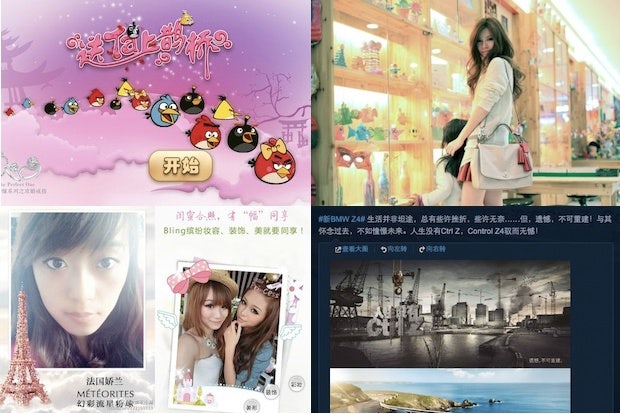
Luxury brands pulled out all the stops on Chinese social media this year, coming up with some highly creative interactive campaigns that tugged at the heartstrings and appealed to the vanity of their Sina Weibo fans. As part of Jing Daily's ongoing year-end coverage, we've gathered the top 5 most memorable Sina Weibo campaigns of the year, which are listed below. Which campaigns stood out to you this year? Let us know in the comments below or on Twitter, and check out our additional year-end stories here.
1. BMW's Ctrl Z Day Campaign#
On July 12, BMW convinced more than 300,000 users to celebrate “Ctrl Z Day”—a holiday that doesn’t actually exist. The company enlisted key opinion leaders (KOLs) on Sina Weibo to promote the idea that the day was “a worldwide day of regret,” and asked users to share their biggest regrets with the hashtag #Ctrl Z Day#. After emotional outpourings from fans, BMW revealed itself as the engineer of the made-up holiday and promoted the message, “Rather than remembering the past, it is better to look forward to the future. Life doesn’t have a Ctrl Z. Control Z4: drive and have no regret!”
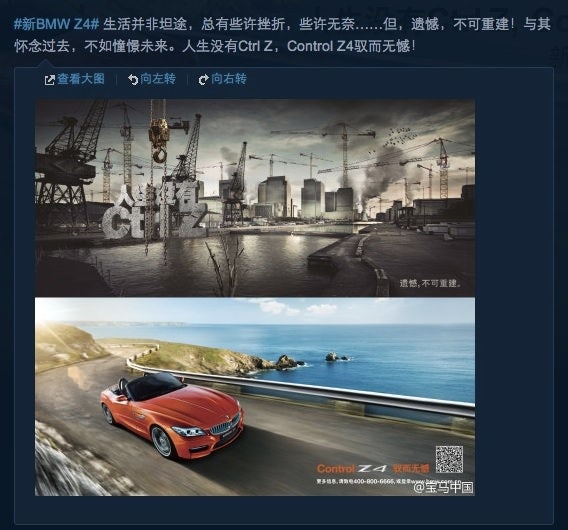
2. Chow Tai Fook’s Angry Birds Qixi Festival Campaign#
Embracing the traditional Chinese myth of Qixi Festival (七夕), or “Chinese Valentine’s Day”, jeweler Chow Tai Fook launched a campaign on Weibo featuring the Angry Birds in lieu of the magpies who form a bridge for two star-crossed lovers in the holiday's original story. The campaign called on Sina Weibo users to set up their single friends by including their handles in a post with a special hashtag that caused the “matches” to show up on a Chow Tai Fook mini-site. Participants were entered in a drawing to win a gold Angry Birds necklace.
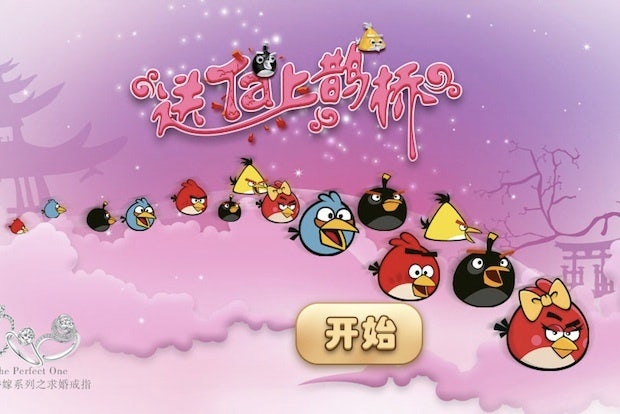
3. Coach's Searching for Hot Moms Campaign#
With lagging North America sales, American leather goods brand Coach has been described by American media as a “mom” brand, which was not used in a positive context. In China, the company has decided to own this status, launching its “Searching for Hot Moms” Sina Weibo campaign on Mother’s Day. The campaign encouraged users to upload photos of themselves with their kids in order to be entered in a drawing to win a Coach bag. It also seems to have inspired recent copycat contests. This campaign was one of several successful Sina Weibo and WeChat campaigns launched by the brand this year.
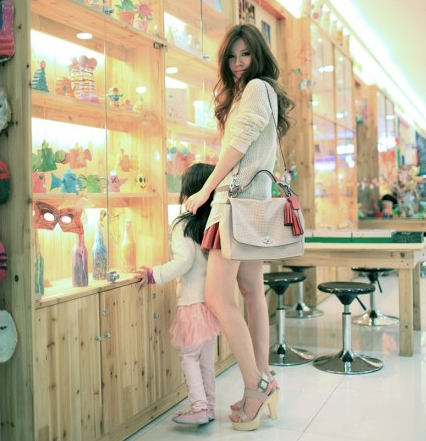
4. Mercedes-Benz's Dream Makers Campaign#
Following a trend of “role model marketing” that was apparent in several campaigns this year, Mercedes-Benz launched a “Dream Makers” campaign on Sina Weibo showcasing videos of several successful creative industry professionals. Instead of glamorous movie stars, the campaign used behind-the-scenes figures, such as suit designer Allen Xie, iLiangcang founder and head of The Outlook Magazine Jiaojiao Chen, and DJ Ben Huang. The videos featured the figures giving life advice to viewers, telling them to avoid making choices “based on money and time” instead of on one’s true passions, and then called on fans to participate by posting their own dreams on Sina Weibo to be entered for the chance to win a Mercedes-Benz.
5. Guerlain's “Beauty Camera” Campaign#
This summer, French beauty company Guerlain launched a promotion of its Météorites powder using both Sina Weibo and a popular mobile app called “Beauty Camera (Meiren Xiangji 美人相机). The app is one of many “photo booth”-style platforms used by young Chinese women to take selfies and then transform the images into anime-like versions of themselves, with wide eyes, porcelain skin, and even a new chin. The company called on users to submit their heavily edited photos with a Guerlain border on Sina Weibo for the chance to win a free trip to Paris, and attracted around 41,400 users. After Jing Daily first reported on it, the campaign generated controversy among U.S. commentators, who said that the app “is pushing us closer to wide-eyed, pale skinned homogeneity” and is “a virtual version of plastic surgery trends among Asians and Asian immigrants” that may be turning women into “clones.”
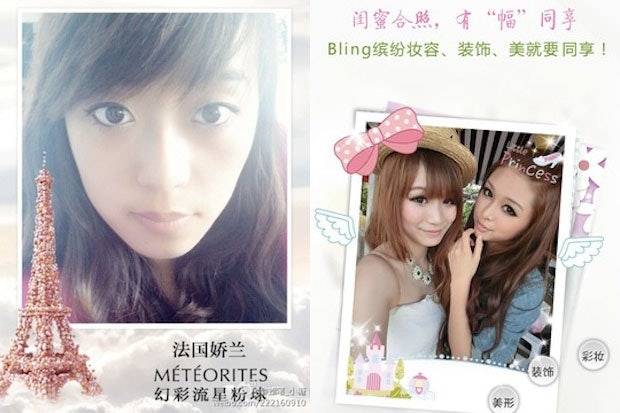
If you want to learn more about Sina Weibo marketing, join Jing Daily and China Luxury Advisors on January 15 for our "Weibo vs. WeChat" webinar.